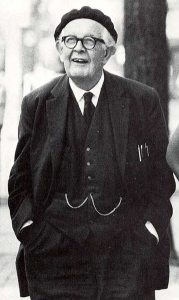Challenge in science lessons
 Is there any evidence that challenge leads to better learning in science? Well, I suppose it depends on what we mean by challenge. Challenge does not simply mean difficult. Challenge refers to a moderate level of difficulty that allows students to experience a sense of mastery and competence when they succeed.
Is there any evidence that challenge leads to better learning in science? Well, I suppose it depends on what we mean by challenge. Challenge does not simply mean difficult. Challenge refers to a moderate level of difficulty that allows students to experience a sense of mastery and competence when they succeed.
Challenging students motivates them. It makes assessment of learning visible, allowing rapid feedback and responsive teaching. And, if used effectively, it can help students reorganise their thinking. Below I have considered some of the key people of who have influenced my thinking around challenge.
There is a more recent update on structuring struggle here.
Piaget
Jean Piaget proposed that intellectual growth was the result of cognitive conflict, a specific form of challenge. When a learner meets new information or a new experience that does not align with their current way of thinking, they must form new mental structures that allow this new information to be accommodated. In this way, challenge can bring about cognitive change, involving the reorganisation of children’s ideas.
Driver
We can help students progress by actively challenging their misconceptions. Students enter classrooms with a multitude of misconceptions, such as plants don’t respire, cannon balls fall faster than paper clips and light travels from our eyes to the object (Driver et al., 2013). Science teachers must challenge these misconceptions to ensure students arrive at the ‘right’ way of thinking that allows them to make sense of the world around them.
Vygotsky
It is also important that the level of challenge is appropriate. Vygotsky (1978) established the concept of the Zone of Proximal Development (ZPD). This can be thought of as an area of challenge where students are unable to succeed alone, and instead need the help of more capable peers or teachers. “What is the Zone of Proximal Development today will be the actual developmental level tomorrow” (Vgotsky p.87).
This differs to ideas proposed by Piaget, who believed children construct understanding for themselves. Indeed, Vygotsky believed intelligence should not be measured when students solve problems independently. Instead, he thought what a child achieved with adult or peer support was more indicative of their mental development.
Science teachers must challenge students at the upper end of their ZPD to help them progress. But it is a fine balance. If students are challenged too much, they are likely to become disinterested and fail as the cognitive demand exceeds the capacity of students’ working memory. Being over challenged in this way makes students likely to adopt surface approaches to learning.
Bandura
Challenge has an important role in self-efficacy. Bandura describes self-efficacy as, “how well one can execute courses of action required to deal with prospective situations” (Bandura, 1982). Various studies have shown that self-efficacy plays an important role in motivating students. Once source of self-efficacy is experience. If students are set challenging tasks, and succeed, then this increases their self-efficacy. In this way, successes raise self-efficacy and create motivated learners so we need to create opportunities for learners to feel successful through mastering a problem. Explore this interview with Bandura.
Structuring struggle and liminal states
Click here for ideas on how to structure struggle/challenge.
Further reading
- Bandura, A (1977). “Self-efficacy: Toward a Unifying Theory of Behavioral Change”. Psychological Review. 84 (2): 191–215.
- Bandura, Albert (1982). “Self-efficacy mechanism in human agency”. American Psychologist. 37 (2): 122–147.
- Driver, R., Rushworth, P., Squires, A. and Wood- Robinson, V. (2013) Making sense of secondary science: Research into children’s ideas. Routledge.
- Piaget, J. and Cook, M.T. (1952). The origins of intelligence in children, WW Norton & Co.
- Vygotsky, L. S. (1978). Mind in society: The development of higher psychological processes. Cambridge, MA: Harvard University Press.
